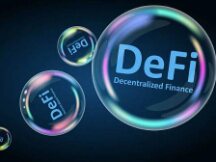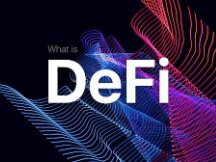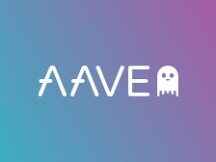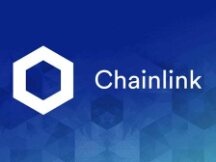Crypto Financial, Centrifuge connects billions of devices for DeFi and the real world.

Crypto-finance has always been committed to using community resources, connecting with existing financial institutions, and providing additional information.
However, this vision is very demanding, it requires a lot of context and context, and faces a variety of challenges that only a few positions perform well in these areas. Known as the "Crypto Central Bank", MakerDAO is one of them and one of the best. MakerDAO has attempted to reintroduce global assets into the cryptocurrency market and raised funds for assets like real estate and music copyright, and Societe Generale has appreciated this as well.
However, little is known about Centrifuge, the company behind MakerDAO which provides service and support. The plan links assets like mail, real estate, and expenses to DeFi, provides transactions with easy and affordable financing, minimizes financial impact, and ensures delivery. Do business with good resources and good profits.
Centrifuge will be introduced into the Polkadot ecosystem while joining multiple DeFi protocols such as MakerDAO and Aave over the four years since its inception, truly achieving a barrier-free flow of DeFi and real assets.
Long and difficult road, but how far does the centrifuge go?
1. The device physically extends DeFi boundaries.
Over the past two years, DeFi (Decentralized Finance) has experienced a period of rapid growth. Whether it is the number of jobs or the income of the chain, the increase can be hundreds of times.
DeFi's success is no coincidence, it's about meeting real solutions and business needs for traditional financial problems. Existing lending business for example, when it comes to understanding and understanding the real estate and lending process is difficult and cumbersome, weak can enter without authorization, allow 7 * 24 hour exchange and quick loan. In particular, liquidity increases after the tokenization of real assets.
These perks have made DeFi explode over the past couple of years. According to chain data, the current stable value of the entire DeFi ecosystem is around $ 250 billion. However, if we look at the data for the last few months, growth has been slow. One important reason is that DeFi currently competes for the majority of products.
Borrowing as an example, many large projects such as Aave, Curue and Compound have emerged and flourished in the ecosystems of BSC, Polygon and Solana. However, these products are essentially homogenized as crypto assets. Although the data is visual, it has not had a major impact on the natural world. Also, $ 250 billion today looks like a star, but there's a lot of water in it, and since many companies have two banks, you might want to lower your demand for a truly crypto loan.
Today DeFi's growth has hit the bottleneck, in a small crypto world, scaling and adopting real-world assets is the right way to go. Better thinking, the global financial services industry is in the billions of dollars, regardless of other credit and financial needs.
"In our opinion, DeFi is a major turning point in the future of financial transactions, and its mission is to solve all trust issues. The future of DeFi too Still need to be connected to the financial market has always brought millions millions of real assets on the market. The future is very promising for this track, "said the Centrifuge group.
The physical body is chained, it is also a direction that many works have attempted over the years but have not finally reached. The main reasons are: First, the weather is not done. These programs were successful around 2017, when industry training was not yet complete, global knowledge of crypto assets was low, and many jobs were being phased out at the start of the bear market in 2018. The second is that the plan is not finished. In the past, many companies advertised ERC20 tokens for funding, but there is no real need for funding due to the lack of assets to acquire private assets or more expensive assets, so they get money as the project tokens get bigger.
Today, with business training accomplished and NFTs becoming more profitable businesses, the real world becomes more interactive and the real asset is back in the process. This is because of the past "failure" of doctors to demand the jobs the crypto industry has now put in sunglasses for long-term operations that support the body chain.
In the long run, however, the future of crypto-finance, especially DeFi, will need to be tied to traditional financial institutions and bring real assets to the crypto market to complement market growth.
It is a business that must last a long time. “Crypto Central Bank” MakerDAO is always ahead. Behind MakerDAO, the best is Centrifuge's silent effort to build a DeFi bridge for real assets. For example, in April of this year, MakerDAO announced that it had opened a line of credit of up to $ 5 million to new real estate company New Silver, a loan approved with the help of the Centrifuge Tinlake lending platform.
“Centrifuge's mission is to connect advocates and investors, to make financial operations more transparent and efficient, creating new opportunities for previously unsecured lenders. can leverage DeFi liquidity and eliminate joint ventures, inefficiencies and inefficiencies. The Centrifuge Group told the Daily Planet Daily.
2. How to crypto-finance real assets?
The centrifuge has been around for 4 years since its inception in 2017. The current centrifuge ecosystem typically consists of the following:
Centrifuge Chain, the POS blockchain built on the substrate, is also the chain's center of gravity (RWA) device. The centrifuge chain is connected to Ethereum, but in the future it will be connected to the Polkadot network using its own token, the Centrifuge Token (CFG).
Tinlake, a Centrifuge Chain based lending process, operates an open market for real estate and is also the mainstay of Centrifuge, which is oriented towards the C side.
The peer sharing network provides a secure way to create, exchange and analyze partner asset data and tokenize assets with NFTs. Providers can optionally share the content of the assets with service providers, who can measure the data and deliver the data to NFTs. Cryptographic signatures can be used to identify data.
Centrifuge's native token, the CFG token, can provide assistance for secure network operation, and symbol holders can also lead the improvement process through chain management. More importantly, users who donate to Tinlake can also receive CFG rewards.
So how does Centrifuge convert physical assets into crypto assets for finance?
(1) Explanatory process
Below, we take the Paperchain music streaming platform as an example to illustrate the functionality of Tinlake in detail.
First, music developers registered with Paperchain to stream their music files across multiple platforms (now Merlin, Spotify, Apple, and YouTube), and Paperchain used their own data model to set prices and estimate future media revenue in streaming (tentatively referred to as "income"). bind ").

(Tin Lake Operational Procedures)
Paperchain then packages the receipts and submits them to the Tinlake platform to generate a powerful Non-Homogeneous Token (NFT), which then converts the NFT into an ERC20 token with interest, and Paperchain can create the income for the token. advertising. Buyers buy interest bearing ERC20 tokens for investments using crypto stable DAI.
At this time, the recipes have not yet arrived, but music producers can start receiving the recipes directly from Paperchain. When the funds arrive, Paperchain will earn money from music producers and then redeem and burn the ERC20 tokens purchased from previous investors, creating a full closed loop.
For a brief overview of Centrifuge's financial process: Equipment manufacturers package and deliver equipment to produce legitimate NFTs. The NFT mortgage estimates its value by design and creates an ERC20 interest token. DAI: Produces Sponsors, Reimbursement After Growth and Investors Earnings.
In addition to receipts, there are many assets such as receipts, car loans, debts, etc. can be converted into tokens for loan through the Tinlake platform. Transparency of assets and investments for
(2) Analysis of Tinlake's assets
There are currently two types of interest-bearing ERC20 tokens, also known as the Tinlake tool pool: Tin and Release.
Falling tokens are similar to old contracts in traditional capital markets and offer lower returns, generally more stable, and with less risk. When redeemed, tokens can get a refund of their investment, which is riskier and can result in the loss of the token.

(Fortunafi Series 1 Financial Pool)
The photo above is a Fortunafi Series 1 silverware pool in Tinlake, with total assets of 1,440,952 DAI, 7 assets and an average grow time of 24.1 months. Among them, the DROP token rate is 1.06 DAI, the 30-day annual interest rate is 5.26%, the TIN token rate is 1.48 DAI, and the annual interest rate on 90 days is 70.35%.
In addition, if the token does not want to provide two tokens to configure the tokens, only one token can be issued, but it must be a TIN. TIN post rates vary, but most require a TIN post rate of at least 10%. This means that holding the Drop token only loses if the drop exceeds 10% of the value of the portfolio.
Second, support devices can create separate Tinlake pools (hardware units) for all types of furniture. For example, a Tinlake pool is used for banknotes and a Tinlake pool is used for mortgages. Prices are configured separately. Thus, each group in Tin and Drop is unique and not universal. For traders, the risks and rewards are limited to their own Tinlake pool and cannot be shared on the Tinlake pool.
Finally, according to Centrifuge's vision, the fixed coin is not limited to the DAI, now DAI and cUSD (Celo USD) are accepted in the pool, and in the future it will be able to accept a Stable token such as Acala, DAI or Celo . The team is also working on the development of the currency markets in Compound and Aave. In addition to the interest, the configuration of the ERC20 tokens can be an average smart contract with a value proposition, or a Tinlake wing controlled by DAO.
3. Is the Centrifuge model favorable?
Theoretically, a centrifuge model is feasible, but how efficient is it? Is it worth it? You can talk from the data.
Judging by the actual landing, Centrifuge's Tinlake has upgraded a real treasure.
Using Paperchain as an example, the traditional music recording cycle is typically 90 days. With Tinlake, Paperchain completed the trial on September 11, 2019 and prepaid $ 60,035 in Spotify revenue for consumers at an annual interest rate of 7%. The full charge start time is less than 30 minutes, with a starting price of less than $ 3 (Ethereum gas price), which shortens the payment cycle and allows customers to focus more on creating and musical production. Factory. Use for example the freight company ConsolFreight. Freight invoice collection cycles are typically 30 to 45 days, which can be reduced to less than a day. it scale.
Currently, Centrifuge has 48.6 million stable DAI operations, a total of 11 timely assets, and a total of more than 70 enterprises / supporting enterprises have developed pool water for lending. Centrifuge also has long-standing partnerships with a number of financial firms, including New Silver (non-bank loan companies), ConsolFreight (financial services and providers) and Harbor (source of funding).
Based on the results, we believe the centrifuge model is worth investigating, but there are still some issues to be investigated.
The first is a way of ensuring that the owner owns the property. Centrifuge would like sponsors to provide proof of membership funds. Information about these assets is shared through Centrifuge's secure network with third parties, including asset measurement companies, research companies, final lending of assets, property and resources. Supporters May: We choose to provide content information to third parties, who may analyze the data and provide feedback to NFT's broadcast. In this way, anyone can become an architect.
“Financial systems have not always enabled small businesses to obtain low income funds. Centrifuge hopes these small businesses can become legitimate and generate DeFi revenue. of the Centrifuge platform ”, explains the Centrifuge team.
The second is the measurement of non-standard objects. In some cases, the real estate may not be a property such as a car or a house, but the property is not a property like the tax law.
In this case, the centrifuge receives a fair value measurement using the financial model. This cash flow measure measures the cash flow that assets will receive in the future and minimizes the cash flow taking into account the present value of the cash flows. This is called the "DCF". “Of course, we will continue to take risks in exchange for our capital to reflect the risks on our assets and the impact of our capital recovery. Come on .... I'm ready to listen.”
The third is the issue of asset liquidity. Even if some asset marketers pass the test, the cryptocurrency market will not be aware of some real assets resulting in a lack of real and incomplete financial asset portfolio. In this regard, Centrifuge has partnered with MakerDAO and Aave to develop instant capital for Tinlake mining pool, this process will increase stable capital and make the product more widely accepted. Again, in the future, Tinlake will also be released on Polkadot. . Thus, DeFi can create endless business through Polkadot and Ethereum. “This partnership between Centrifuge and Aave was developed upstream for DeFi Finance, which would change the rules of the game to the detriment of millions of companies and provide rapid and cost-free financing, a real treasure.
The fourth is dangerous liquidation. In the event of breach of contract, liquidation of real assets will not be as easy as that of chain assets, especially non-standard real assets, as copyright may not have good liquidity and it may be difficult. to find a liquidation counterparty. .
In this case, the Centrifuge uses two strategies that allow lenders to provide sufficient proof of their loans and reduce the risk involved in the process. People still have requests.
“If the borrower is not unemployed, the borrower must repay the investor, if the loan amount is not sufficient to repay the capital of the investor.
Fourth, the road is blocked and long.
In today's financial system, only large companies can enter the liquidity business, and most individuals and small businesses can only meet the capital requirements required by banks. Due to the lack of an open and transparent market, these teams are unable to gain a competitive advantage.
DeFi is a big difference in the financial industry of the future. In particular, institutions like Centrifuge are focused on building bridges between physical assets and the DeFi market, providing new avenues for borrowers who previously could not afford DeFi's liquid capacity.
The centrifuge has made some progress, but it hasn't stopped, and finally there are still some issues to bring real assets into the crypto ecosystem, which is difficult in the long run. And the Centrifuge has been quietly working in this field since its inception, and will be with it for many years to come.
“By connecting the overall management of TradFi with the amazing world of DeFi, we have encountered the challenges that few people now face in DeFi. We have worked by standards. This is a new company, and the The Centrifuge Team is proud to be this new industry leader. ”The Centrifuge Team recalls the issues of starting a business with a mindset.
This method is not easy, but Centrifuge has always been responsible for connecting real devices to DeFi without interruption. Founder Martin Quensel is the founder and co-founder of Taulia in the fields of finance, crypto technology and financial industry automation, and founder Lucas Vogelsang is the CTO of the Swiss e-commerce startup DeinDeal. I work in technology and industry. After working in the field of cross convergence, he met Martin in Taulia and then co-founded Centrifuge. Software engineer Alina Sinelnikova graduated from the Massachusetts Institute of Technology and has many years of development experience. The other key members are familiar with the traditional financial sector and advanced technologies.
In terms of funding, it has raised around $ 20 million since its inception, and venture capital firms such as Blueyard Capital, Mosaic, Crane Venture Partners, Galaxy Digital, IOSG, Lockaway, Fintech Collective, Moonweil, Penbush Capital, TRGC and HashCIB. Business.
The centrifuge has now started second in the PolkaDOT crowd and has increased by over 1.58 million DOT to become the first in the second. Going forward, Centrifuge will work with AAVE-RWA Industry to create a truly unique product chain, enabling anyone to provide high quality real estate products supplied by Centrifuge. Users can invest in multiple assets instead of using just one, spreading it out at no additional cost.
The problem is long and we will continue to monitor the success of the centrifugation.

Scan QR code with WeChat










